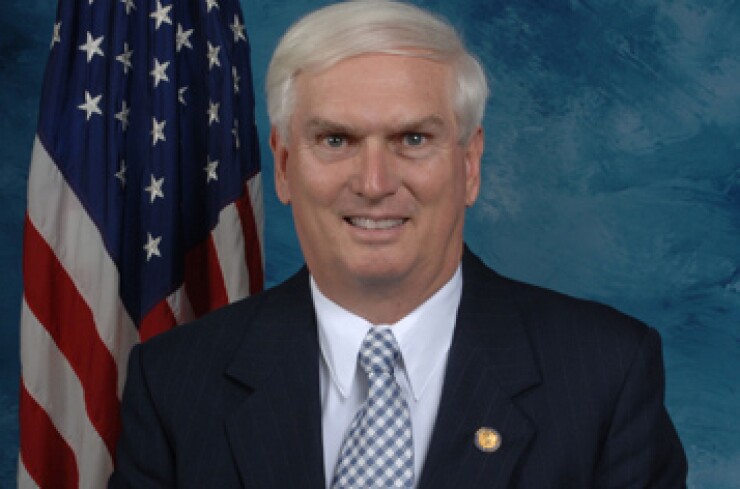
WASHINGTON — Reps. John Duncan, R-Tenn., and Bill Pascrell, D-N.J., have once again sponsored legislation to exempt water and sewer private-activity bonds from state volume caps.
The bill, H.R. 499 or the Sustainable Water Infrastructure Investment Act of 2015, was introduced last week and has been referred to the House Ways and Means Committee. Pascrell is on that committee, and Duncan is vice chairman of the House Transportation and Infrastructure committee.
Currently, most types of PABs, including those for water and sewer facilities, are subject to state volume caps. The bill would amend the Internal Revenue Code to exempt water and sewer PABs from the state issuance limits. Tax-exempt bonds encourage investments in water and sewer projects, but volume caps "in conjunction with other priorities" have limited their use in the water area, the bill's findings section states.
"Removal of state volume caps for water and wastewater infrastructure will accelerate and increase overall investment in the nation's critical water infrastructure; facilitate increased use of innovative infrastructure delivery methods supporting sustainable water systems through public-private partnerships that optimize design, financing, construction, and long-term management, maintenance and viability; and provide for more effective risk management of complex water infrastructure projects by municipal utility and private sector partners," the authors wrote in the bill.
The National Association of Water Companies supports the bill.
"In a capital intensive industry, as is the case with drinking water utilities, such infrastructure financing is a key component in making critical repairs and upgrades to the water systems to ensure clean, safe and reliable drinking water," said Michael Deane, the group's executive director. "In the long run it prevents significant costs associated with deferred repair and replacement and keeps customer rates lower, all with minimal cost to the federal government. "
This is not the first time members of Congress have proposed excluding water and sewer PABs from the caps. Duncan and Pascrell sponsored a nearly identical bill during the last Congress, and Pascrell introduced similar legislation in 2011 as well. Bills on this topic were also introduced in the Senate last year and in 2011 by Sens. Mike Crapo, R-Idaho, and Bob Menendez, D-N.J. But none of them passed.
President Obama also proposed exempting water and sewer PABs from caps in his fiscal 2015 budget. And the qualified public infrastructure bonds that Obama recently proposed could be used for water and sewer projects and would not be subject to volume caps or the alternative minimum tax.
States' annual volume caps for PABs are determined by a formula released by the Internal Revenue Service. For 2015, states' new capacity to issue PABs is the greater of $100 per capita or $301.52 million. States also can carry forward unused volume cap for up to three years.
In addition to PABs for water and sewer projects, PABs for some other types of exempt-facility bonds, mortgage revenue bonds, industrial development bonds, student loan bonds and first-time farmer bonds are subject to the state volume limits. PABs that are not subject to state volume caps include 501(c)(3) bonds used by nonprofits, veterans' mortgage bonds and some types of exempt-facility bonds, such as those for airports and docks and wharves.





